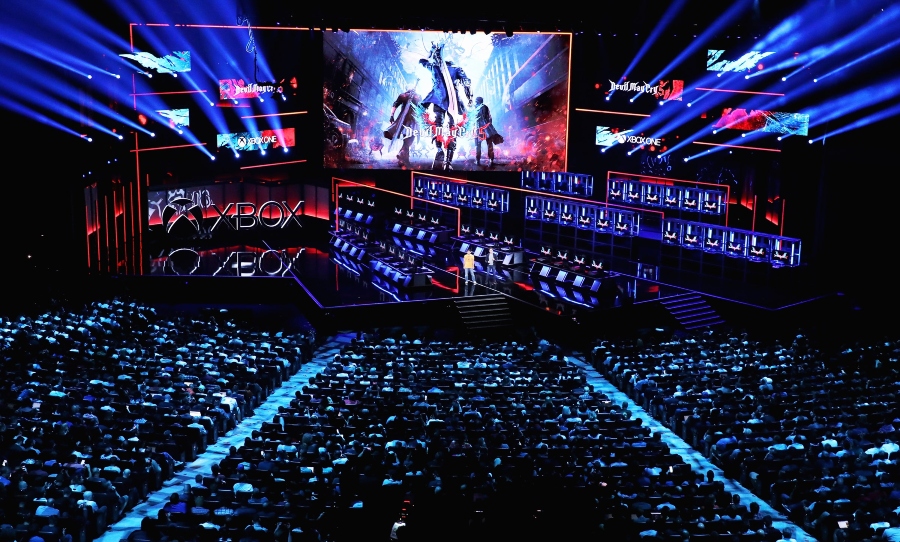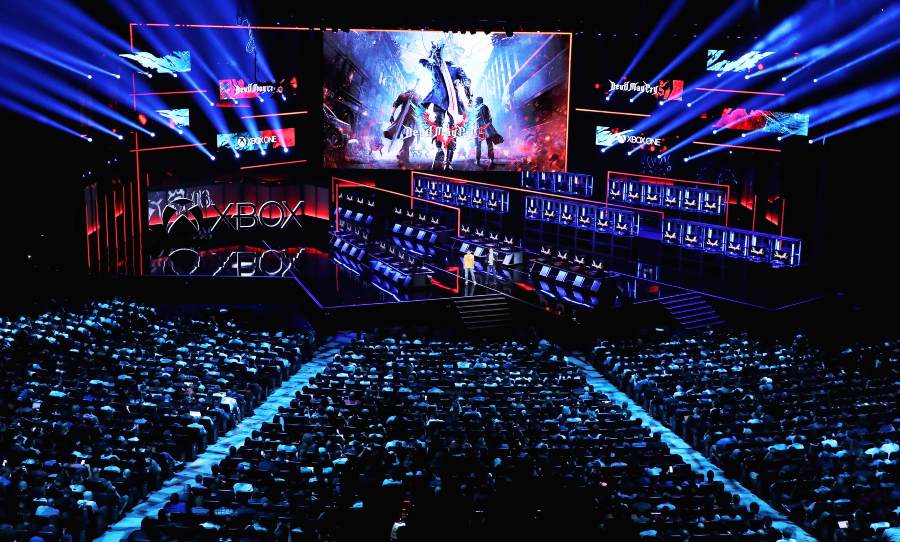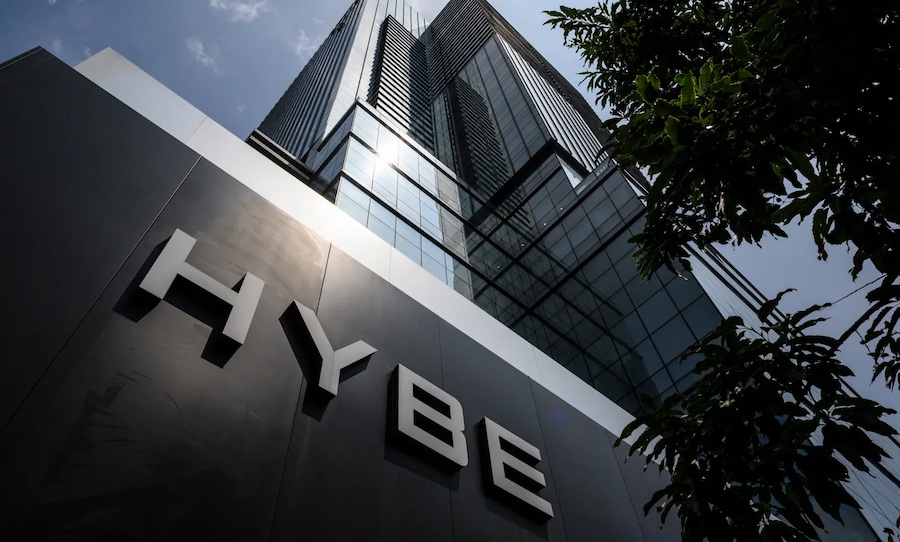Gaming giants have some of the biggest release launches on the planet. Often spread out over a year or more, game developers are the ultimate hype builders, trailer teasers, and cryptic posters, promoting stunning gameplay videos that generate an unmatched sense of excitement in the gaming community. But how does this compare to the music industry?
Twitch and YouTube streams are now a crucial tool for showing off new titles. If PewDiePie is scared shitless by the new Outlast game it’s a sure thing people will buy it. In the music industry, it seems albums drop out of nowhere. If you don’t keep an eye out you’ll walk right past one and potentially never pick it up.
From gaming conventions to extended-release plans, these are the all the things the music industry can learn from gaming marketing.
There is no other marketing machine in the world that can compete with gaming. This is how the music industry can take note on hyping up releases.
Gaming conventions
E3 and Gamescon are among the biggest gaming conferences in the world. Every year, hundreds of thousands of people attend these high profile events in the hopes of getting the first glimpse of that year’s biggest AAA releases. The conventions are littered with gaming royalty whom fans can meet as well as get their hands on early edition alpha models of the titles they are looking forward to.
This is where the virtual arms race between Microsoft, Sony, and Nintendo reaches its most competitive apex. Each industry giant, amongst countless others, compete to promote the best gaming exclusives, most alluring trailers, and, every so often, high-powered next-gen consoles.
Ultimately, these largescale industry events are hugely important for generating hype in the gaming world and are outlined in red marker on every gamers calendar.
While music conventions do exist, such as BBC Introducing Live, Amsterdam Dance Event (ADE), and Midem, they aren’t nearly as crucial to the general mainstream public. They are usually exclusive industry events, gear panels, or showcases.
Showcases such as SXSW, Bigsound and Pitchfork Music Festival are likely the closest equivalent in the music world, and while they remain crucial components for industry pollination and propelling artists’ careers, they have far less appeal to the general public.
It’s important for the mainstream audience to be connected to the music industry as well as their favourite artists in order to keep the industry authentic and still focused on servicing fans.
One Man’s Sky
In fact, marketing has gotten so crucial to gaming that a convincing release plan can be even more important than the contents of the game itself. The procedurally generated space travel game, No Man’s Sky is now famously recognised as ‘One Man’s Lie’.
The concept of a neverending, infinite space wherein you can launch into the stratosphere of any planet and go in search of a new one is entirely seductive. Over three years of hype generation, during which Sean Murray, founder of Hello Games, painted an elaborate picture of history’s greatest space exploration game. However, upon launch, it became apparent that many crucial elements of the game were left out and it wasn’t multiplayer at all.
Along with featuring an incredible soundtrack from post-rock outfit 65daysofstatic, Murray’s surmounting list of lies saw the game achieve sales typical of any AAA title when it launched in August 2016, though it left many fans disappointed.
A list of lies include planetary physics, asteroid landings, space station and fleet destruction, large fleets, travelling freighters, large scale battles the player can join, interaction with other players, in-atmosphere battles, NPCs outside trading posts and other docks, flying between stars (as opposed to warping via the Galactic interface), among many many more.
This case of mass marketing, careful planning, and dishonestly generating hype is a perfect example of how powerful and important game marketing can be, to the point where convincing marketing is almost more important than the product itself.
Financial differences
In 2017, the US game industry as a whole was worth $18.4 billion. In 2018, the US music industry was worth $19.1 billion, a 9.7% increase from the previous year. It is the first growth spike the music industry has seen in two decades. The gaming industry, on the other hand, is projected to reach $230 billion by 2022. That’s more than 11 times the music industry.
As a result, there is far more money available for games developers to draft elaborate marketing plans. The AAA equivalent of a music release is Tame Impala’s fourth album, The Slow Rush. By releasing four singles, appearing on Saturday Night Live, and holding a one-off special listening experience on Spotify, Kevin Parker had generated maximum hype and executed an extremely successful release plan.
While money remains a prominent divide between the gaming and music industry, more and more indie developers are finding a footing in the wider mainstream sphere due to console marketplaces. This is a particular area of the music industry that could be improved.
By growing marketplaces and sharing platforms that promote the socialising and sharing of independent music, there would be far more focus on these artists and a community surrounding those spaces.
Symbiosis
Interestingly, there are many ways that the gaming industry has helped the music industry to thrive on many levels. Ever since the days of Tony Hawk’s Pro Skater, contemporary bands have been blasted into the ears of kids and imprinted on their brains through games.
Now, the globally popular FIFA, Madden, Need For Speed, Grand Theft Auto, and Guitar Hero have boosted the careers of artists for many decades and are a shining example of cross-pollination in the gaming and music sectors.
Moreover, artists such as the aforementioned 65daysofstatic have done albums for games. London trio Daughter recorded the soundtrack to Life Is Strange: Before The Storm, while Steve Vai and Nile Rodgers were recorded on the Halo soundtrack, which is one of the most instantly recognisable of all time.
In 2018, the Royal Philharmonic Orchestra played music from Crash Bandicoot, The Last Of Us and Resident Evil in concert at Royal Albert Hall. Similar concerts have occurred around the globe featuring music for Mario, The Legend of Zelda, and Final Fantasy. For many gamers, this is their first concert experience and introduces them to the world of live music.
Though the industries aren’t directly comparable, the potential for music is compelling. We can only hope that record companies, live music promoters and most importantly, artists, pay heed to the lessons the example set by the gaming world.



